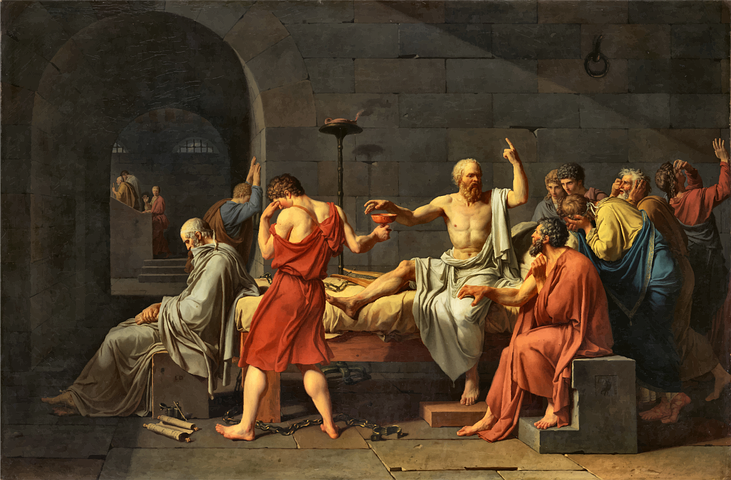We’ve spent the last two weeks thinking about the dominant form of grades used in schools today, the history and effects of that system, and why they are not the ideal for a classical Christian school.
Bear with me one more time as I recall our pitching metaphor. A coach who tells a young pitcher that they threw a “C+” pitch is not providing much help. And the young pitcher who interrupts a coach’s instruction to ask, “Yeah, but did I pass?” might be riding the bench for a while. Why? Because we understand intuitively that constructive feedback is about more than a graded evaluation.
Read More
Topics:
Blog Posts,
Classical Education,
True Education,
Teaching,
Grades,
Virtue
As we saw last week, the modern grade scale is a fairly recent development in education and not one that has a long history of success or stability. This week we will look at how grades are perceived to function which has important implications for a Christian classical school.
The purpose of grades in a classroom, under the A–F system, is to pass judgment through a numerical evaluation. This gives the notion of impartiality and objectivity while mitigating the force of the judgment. We pass judgment every day, of course, regarding what shoes to wear, what route to take to work, and even what to say to our boss. Judgment is an inescapable part of the human experience. But there is no denying: we do not like feeling “judged.”
Read More
Topics:
Blog Posts,
Classical Education,
True Education,
Teaching,
Grades,
Virtue
Imagine you are a young pitcher, standing on the mound of your first Varsity baseball practice. You throw the ball to the catcher, and your coach proceeds to tell you that it was a “C+” pitch. What would you think? The example seems ludicrous to us because we know what the young man needs: pointed, specific guidance so that he can improve the pitch. We know intuitively that the letter, in this case, is unhelpful.
Now imagine the same scenario from a slightly different angle. You are the coach. As you approach the mound and begin explaining to the student how to use their shoulders as they throw, you are suddenly interrupted. “Yeah, but did I pass, Coach?” You can imagine the frustration in this similarly absurd example. “A student would never say that!” you think to yourself. And you’re right; they would not. Again, this is intuitive; there doesn’t even seem a need to explain it. Similar scenarios could be played out ad nauseum, with different actors substituted in to show that applying a percentage system of grading to life is unhelpful at best and downright dehumanizing at worst. So why does this same proposal meet with such hesitancy when applied to the classroom?
Read More
Topics:
Blog Posts,
Classical Education,
True Education,
Teaching,
Grades,
Virtue
St. John Chrysostom, Archbishop of Constantinople, was a fourth-century Church father known for his powerful and eloquent preaching and public speaking. It was his skill in oratory that earned him the name, “Chrysostomos,” or “Golden-mouthed.” And just as gold is both precious and weighty, Chrysostom’s words were not only beautiful, but always employed in the pastoral service of salvation and social justice.
Read More
Topics:
Blog Posts,
School Life,
History,
Public Speaking
Our days are BUSY. Between work responsibilities, volunteering, taking care of the home, and transporting children to school and other extracurricular activities, the average parent has little “downtime”. Over the last two years or so, the Lord has impressed it upon our hearts to be more intentional with the time we have been given with our children. If we want our children to really know the God we love and serve, then it is our responsibility to model that to them in everyday moments.
Read More
Topics:
Blog Posts,
School Life,
Parenting,
Christian Education,
Christian Living,
Parent Involvement
Trinitas has a long and tasty history with barbecue. You might even say it's an integral part of a Trinitas education! Back in the early days of the school, our founding headmaster’s father, Grampa Trotter, used his meat-smoking prowess to bring school families together for picnics and community-building events. Even Grandma Trotter pitched in with her famously delicious, but always secret sauce. Although the Trotter family has all passed on from our school, the tradition of sharing good barbecue with friends and family still remains, particularly in connection to the annual Trinitas Junior/Senior Aesthetics trip.
Read More
Topics:
Blog Posts,
School Life,
History,
Aesthetics Trip
The work Trinitas requires can put a strain on parents and students, but, as uncomfortable as it is to hear, that’s the way it ought to be. School should be hard. Why? Because hard work brings a profit (Prov. 14:23).
Think of something good. Is it easily acquired? Now something beautiful… Now true… The world our Father created yields its fruit only to laborers like the ant in Proverbs 6. Students who are allowed to grumble about memorizing an additional five vocabulary words or to roll their eyes when required to show all of their math work are being prepared to live life lazily.
Read More
Topics:
Blog Posts,
School Life,
Christian Living
What possible connection could there be between an ancient Greek teaching method, learning experienced shared by Trinitas students, and how intentional parents can train thoughtful children?
First the answer to the question and then an explanation. The connection is this: the pursuit and apprehension of Truth.
Read More
Topics:
Blog Posts,
History,
Classical Education,
Teaching








